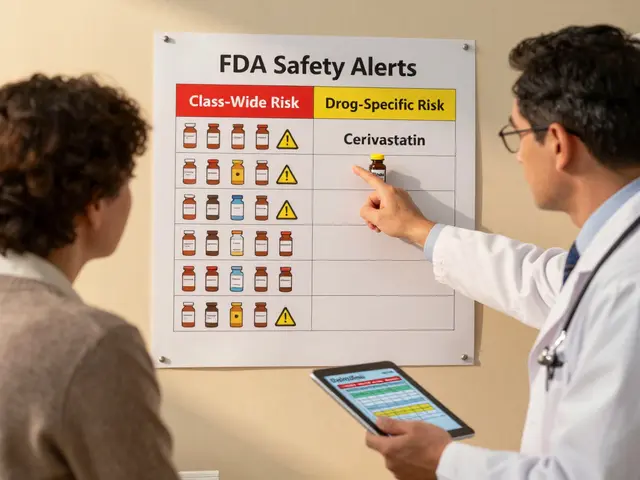Spironolactone side effects: what to expect and how to stay safe
Spironolactone can be a useful medicine for blood pressure, fluid retention, and hormone-related acne. But people ask about "spironolactone side effects" because it can cause both mild annoyances and risks that need watching. This page explains the common problems, serious ones to spot fast, and simple steps you can take to lower risk.
Common, usually mild side effects
The most common complaints are dizziness, headache, stomach upset, and breast tenderness. Dizziness usually happens when you stand up quickly because spironolactone lowers blood pressure. If your stomach feels off, try taking the pill with food. Some people notice changes in menstrual flow, decreased libido, or erectile changes—these are linked to the drug’s hormonal effects.
Gynecomastia (breast growth in men) can show up after weeks or months on the drug. Sometimes it goes away after stopping spironolactone, but it can persist. Skin rashes and mild taste changes happen too, but they’re less common. Most of these side effects are manageable; if they bother you, speak with your prescriber about dose changes or alternatives.
Serious risks and when to act
Hyperkalemia—high potassium—is the biggest one doctors watch for. Too much potassium can cause muscle weakness, tingling, or an irregular heartbeat. If you feel extreme weakness, numbness, a fast or fluttering pulse, or fainting, get emergency care right away.
Spironolactone can also affect kidney function. Your doctor will check blood tests for potassium and creatinine after you start the medicine and at intervals after that. If your kidneys are already impaired, or you take other drugs that raise potassium, the risk goes up.
To reduce danger, avoid potassium supplements and salt substitutes that contain potassium. Be cautious with herbal products and over-the-counter meds—some increase potassium or hurt the kidneys.
Common drug interactions include ACE inhibitors, ARBs, direct renin inhibitors, and other potassium-sparing diuretics. Nonsteroidal anti-inflammatory drugs (NSAIDs) can blunt kidney function and increase risk. Always tell your prescriber about all medicines you take, including supplements.
Pregnancy and breastfeeding deserve special mention: spironolactone has anti-androgen effects and is usually avoided in pregnancy, especially if you might be carrying a male fetus. Talk to your clinician about safer options if you’re pregnant or planning pregnancy.
Practical tips: take the medicine with food to cut stomach upset, stand up slowly to prevent dizziness, avoid extra potassium, and keep scheduled blood tests. If side effects are mild and tolerable, your doctor may simply monitor you. If they’re severe or sudden, contact healthcare right away.
If you have kidney disease, diabetes, or take other blood pressure meds, mention that before starting spironolactone. A short conversation and a couple of blood tests can keep treatment safe and effective.

Alcohol and Spironolactone: Health Risks, Potassium Spikes & Dehydration You Can't Ignore
Mixing alcohol with spironolactone can hit harder than you think, causing potassium spikes, sudden dizziness, and risky dehydration. This article digs into the biology behind these side effects, unpacks warning signs, and delivers practical tips for avoiding complications. You'll find real-life advice, a must-see list of dehydration signals, and facts you won’t stumble upon on a medicine bottle. Stay informed—your kidneys and heart will thank you.
Health and MedicineLatest Posts
Tags
- online pharmacy
- medication safety
- generic drugs
- medication
- dietary supplement
- side effects
- online pharmacy UK
- drug interactions
- mental health
- impact
- online pharmacies
- statin side effects
- dosage
- generic vs brand
- pediatric antibiotics
- antibiotic side effects
- skin health
- health
- pain relief
- dietary supplements




